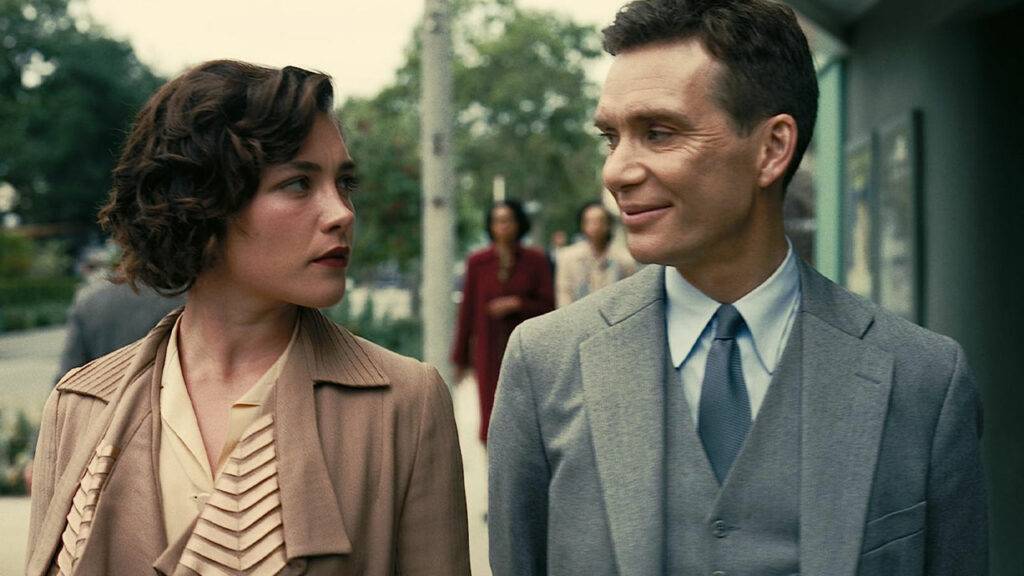Jean Tatlock, a brilliant psychiatrist and member of the Communist Party, lived during a tumultuous period marked by political strife and personal challenges. Her life and tragic death have become subjects of interest, especially in the context of the portrayal in the movie “Oppenheimer.”
In this article, we delve into the facts surrounding Jean Tatlock’s cause of death and the cinematic representation in the film.

Jean Tatlock Cause of Death
Jean Tatlock, due to her relationship with Oppenheimer and her membership in the Communist Party, found herself under FBI surveillance, with her phone tapped. According to historical records, Tatlock battled clinical depression, ultimately leading to her tragic suicide on January 4, 1944.
Was Jean Tatlock Killed in Oppenheimer Movie?
The Oppenheimer movie takes artistic liberties with the portrayal of Jean Tatlock’s death, leaving viewers wondering about the accuracy of the depiction. Unlike historical records that confirm her suicide, the film leaves the cause of her death ambiguous, sparking debates about its purpose and intent.
“The movie portrays Jean Tatlock’s death in a way that raises questions about how it compares to the true story of her suicide.
Oppenheimer does not definitively show or say how Jean Tatlock died, possibly to acknowledge conspiracies surrounding her death or to represent Oppenheimer’s guilt and sense of responsibility”2.
Acknowledging Conspiracies
Christopher Nolan’s decision not to definitively depict Jean Tatlock’s cause of death in Oppenheimer could be rooted in acknowledging the conspiracy theories surrounding her demise. Some believe that Jean was murdered due to her communist ties and her relationship with J. Robert Oppenheimer.
By keeping the cause ambiguous, the filmmaker opens the door to these theories, leaving the audience to question the events leading to Tatlock’s death.
“The reason that Oppenheimer does not definitively show or say how Jean Tatlock died could be varied. This might have been a way for Christopher Nolan to acknowledge the conspiracies that Jean was murdered due to her communist ties and relationship with J. Robert Oppenheimer”.
Representing Guilt and Responsibility
Another perspective on the ambiguous portrayal of Jean Tatlock’s death in Oppenheimer is linked to the character’s guilt and sense of responsibility. By not explicitly showing the suicide, Nolan might be emphasizing Oppenheimer’s internal turmoil and the weight of his involvement in Tatlock’s life.
The film could be exploring the psychological impact of their relationship, leaving the audience to interpret the unspoken emotions.
“It is also possible that the filmmaker wanted the version where it looks like someone drowns Jean to represent Oppenheimer’s guilt and sense of responsibility for what happened”.
Sensitivity and Audience Consideration
The decision to avoid explicitly depicting Jean Tatlock’s suicide in Oppenheimer might also be a conscious effort to handle the sensitive nature of the subject matter. Suicide is a complex and delicate topic, and filmmakers often tread carefully to avoid potentially harmful content.
By leaving the cause of Tatlock’s death open to interpretation, Oppenheimer could be aiming to maintain a level of sensitivity and protect the audience from explicit scenes.
“The other possibility is that Oppenheimer simply wanted to avoid showing Jean’s suicide blatantly to not expose audiences to it”.
Conclusion
In unraveling the mystery of Jean Tatlock’s cause of death and its portrayal in the Oppenheimer movie, it becomes evident that the filmmaker, Christopher Nolan, deliberately chose ambiguity. Whether to acknowledge conspiracies, emphasize guilt, or handle the subject with sensitivity, the decision adds layers of complexity to the narrative.
As viewers engage with the film, they are left to ponder the true events surrounding Jean Tatlock’s tragic end.


